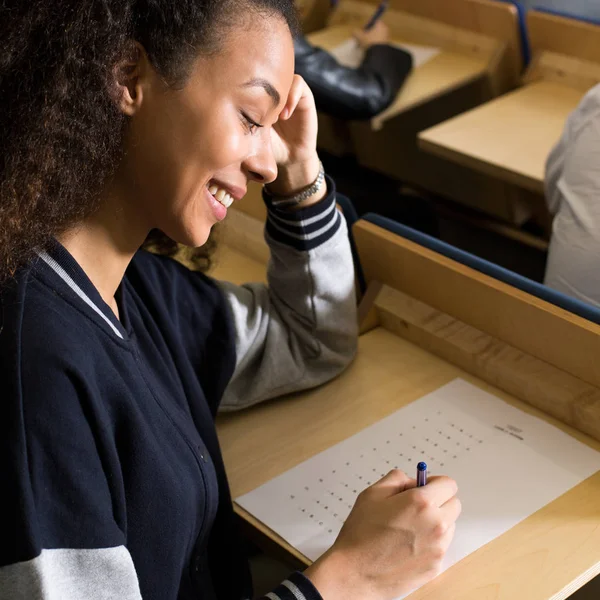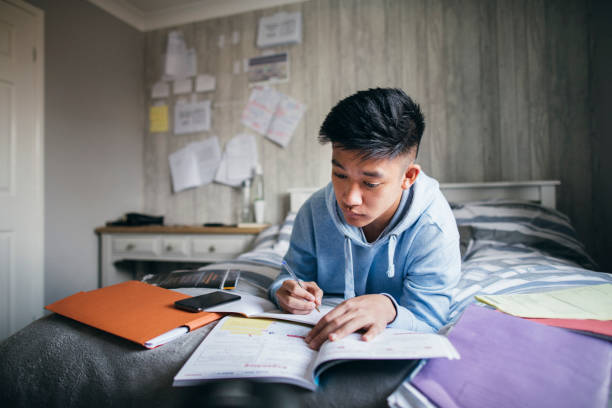
Top 3 Worst Study Habits – How to Break Them
Top 3 Worst Study Habits – How to Break Them
Studying is an essential part of test prep as well as an important academic skill. However, not everyone knows how to study. If your child hasn’t been doing well on tests, the culprit may be their study habits.
Unfortunately, study skills are not a topic discussed in most classrooms. Therefore, if a student wants to learn these skills, they have to look outside of their school. Oftentimes, students end up teaching themselves how to study. This is how bad study habits are formed.
Most students incorrectly assume that the act of studying is about rote memorization. But really, studying is more than memorizing facts in order to ace a test. To study effectively, students must engage with their course material. Engaging with the course material means that a student is able to explain ideas and concepts versus regurgitating information.
This blog will focus on the top three worst study habits and tips for how to help your child build better study skills.
#1. Cramming the night before a test.

It’s the night before a big exam. You’re sitting at your desk with a cup of coffee, all your notes, and a few textbooks ready for a full evening of studying. You take the test the next morning and receive a bad grade. But you studied! What could possibly be the problem?
Cramming the night before a big test is one of the biggest study mistakes students make. However, this is also the most prevalent. A survey conducted found that 99% of student participants admitted to waiting until the night before a test to study. When asked why they crammed for tests the most popular reason cited was “lack of time”.
Between completing school work, participating in extra curricular activities, and maintaining a social life, students are spread thin. Unfortunately, studying takes the back burner to more pressing projects, assignments, and events.
Most students are also under the impression that studying the night before the test means the information will be fresh on their minds the next day. But that’s not always the case. In fact, a study showed that spacing out study sessions was beneficial to student outcomes. Students who space out their studying retain what they learn long term while students who cram for tests lose all memory of the information they studied within 1-2 days of cramming.
In the end, poor time management is the biggest reason for leaving a study session to the last minute. Cramming for a test might seem like a good idea in the short term, but ultimately it’s a terrible habit that leads to learning loss.
How to Build the Skill: Create a Study Schedule

If your child leaves their studying for the night before a test:
- Make sure that you and your child are marking important exam dates on your calendars. This ensures that your child won’t forget the date and end up cramming the night before. And having the exam on your calendar will help you keep your child accountable.
- Help your child create a schedule where they block off a little time each day to study leading up to the exam. Setting time aside to study teaches your child how to manage their time and how to prioritize tasks.
- Ask your child questions about what they are studying. In order for studying to be effective, students must be able to explain what they are reviewing. By asking questions about the content they’re studying, you’re helping to reinforce their learning.
#2. They study while listening to music or watching TV.

We live in a technologically abundant world. From cellphones to Ipads and all the gadgets in between, we have a wealth of distraction in our pockets and at our fingertips.
For students, the allure of technological distraction, such as responding to text messages or checking social media, is a hard temptation to resist, especially when they get bored. In fact, a large survey conducted found that one out of every three high school students was bored in their classes, with 75 percent of the student participants reporting that the material covered in class was not interesting. And when students get bored they turn to their phones for entertainment.
While studies show that listening to certain types of music during study sessions may be beneficial to student learning, watching television while studying is cited as one of the worst study habits.
The problem is that the child’s attention is divided between two or more activities, and they are unable to give their full attention to their studies. Unfortunately, the lack of focus negatively impacts their test scores and GPAs.
Keeping focused while studying can be a difficult task. But it is necessary life skill with major benefits in both the long and short term.
How to Build the Skill: Take Away All Distractions

If your child is easily distracted while studying:
- Start by taking away any distractions for the duration of the study session. If your child needs a computer or other device to complete their studies, make sure they are not clicking between tabs.
- Break up your child’s study sessions into smaller chunks. For example, instead of blocking off an hour of uninterrupted study time for your child, break the hour up into ten or fifteen minute increments with three to five minute breaks in between each session. The breaks will give them down time to process information while also giving them time to decompress.
- During breaks, your child can destress by meditating, stretching, or getting up and walking around. They should not be using breaks to check their devices as this will impact their focus and take them out the study mindset.
#3. They are bad at taking notes.

As an educator, I saw the same notetaking issues among my students time and time again. Consistently, I found that there were two categories of notetakers: those that wrote down everything the teacher said and those that wrote down barely anything. However, both notetaking methods are problematic.
Notetaking is an important skill in helping students process information in a way that makes sense to them. However, students often miss the point of notetaking.
The issue is that most students find notetaking stressful. They are unable to differentiate between important versus nonessential information, and therefore feel the need to write down everything the teacher says verbatim because they are afraid of missing out on something important. On the other hand, the students who take minimal notes usually do so because they are overwhelmed by the amount of information being shared and incorrectly assume that they can study by reading the textbook cover to cover after class.
In the end, if a child is studying from bad notes, they will most likely end up with a bad grade. This is why students must find efficient and effective notetaking strategies that work for them.
How to Build the Skill: Quality not Quantity
If your child is a bad note taker:
- Have your child rewrite their notes in their own words. This method forces your child to explain the information they are learning in a way that makes sense to them, while ultimately processing the content.
- Help your child practice good notetaking strategies by asking them where they can condense information. It is bad notetaking practice to use complete sentences. Your child should look for instances where a keyword with a brief explanation or an important phrase gets the big idea of the lecture across in the most efficient way.
- Always write down key facts. Since key facts are essential information, teachers will almost always go the extra mile to make sure their students know its important by writing it down on the board or repeating it. Key facts are a good foundation for notes. During their post class study session, your child can take time to write down any extra information, analysis, or interpretations concerning the key facts that they didn’t have time to write during class.
Next Steps
Practice, time management, and focus are the major keys to turning a bad study habit into an amazing study skill.
Let us show you how to study effectively! Our expert academic counselors are ready to help. Contact us today to learn more and schedule an academic evaluation to find the best MEK program for your child!
We look forward to working with you!




